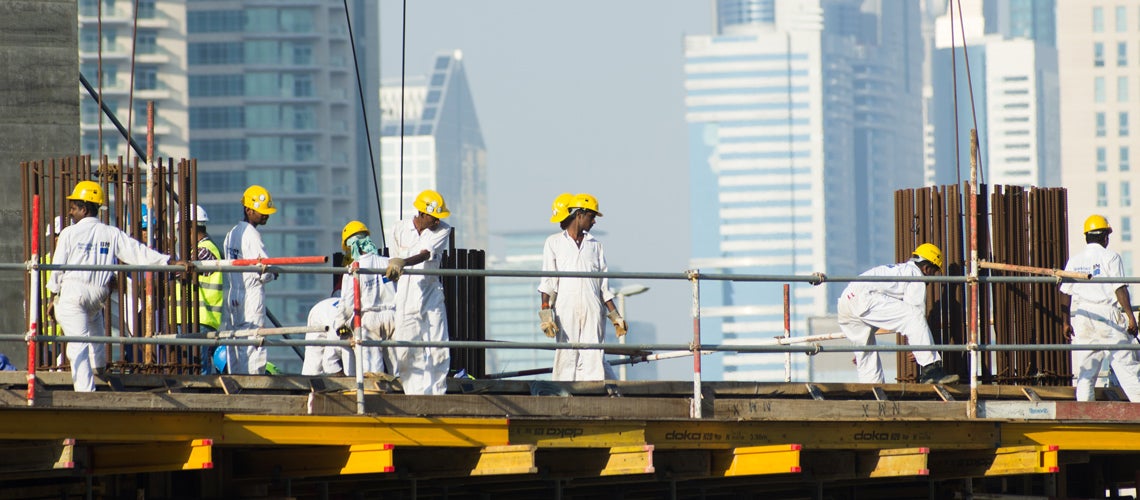 Photo credit: Shutterstock
Photo credit: Shutterstock
"MENA countries are on the cusp of important regional integration initiatives that will provide much needed efficiency gains, diversification, trust building and green growth."
The Middle East and North Africa (MENA) is a region of abundant human and natural resources, shared culture and languages and a well-established heritage of skill in trade. With a total population close to that of the European Union, the MENA region is, however, the least economically integrated in the world. As they strive to create more jobs, attract more investment, boost growth and recover from the pandemic, countries of the MENA region today have a strong economic incentive to accelerate their efforts at regional integration.
The MENA region has been at the crossroads of regional trade throughout history. Countries have previously established a host of multilateral, regional, and bilateral trade agreements, with limited tangible outcomes. The benefits of regional integration include growth spillovers, larger markets, and production scale economies. These are well recognized by MENA economists, traders and farmers alike. What is lacking is not a rationale or capacity to integrate, but rather a sense of urgency to prioritize and move forward with integration.
Opportunities for regional integration include energy and water and certain geographic regions within MENA. These would benefit from advanced dialogue, foundational technical work, and the promise of strong and near-immediate positive economic impact.
With the exception of the Gulf Cooperation Council (GCC) countries, the energy sector in MENA is interconnected but not integrated. This means only two percent of the electricity produced in the MENA region is traded between countries each year. Recognizing the benefits, the Arab Ministerial Councils for Electricity (AMCE), under the League of Arab States (LAS), has prioritized the establishment of a Pan-Arab Electricity Market (PAEM). The World Bank is engaged in this initiative and has been offering technical assistance and advice. Indeed, the PAEM has the ambitious objective to increase cross-border electricity trade from the current two percent to 40 percent by 2035. This will equip the MENA region with one of the largest multi-country integrated systems in the world—producing a total generation capacity of over 600 gigawatts by 2035.
"In anticipation of the African Continental Free Trade Agreement (AfCFTA), now is the time to expand and deepen existing platforms for regional cooperation."
In North Africa, scaling up existing regional energy with Europe’s Mediterranean countries should also be expanded. At my recent meeting with Arab Governors during the World Bank Group Annual Meetings, I emphasized the need to sustain and accelerate these critical regional energy initiatives and to prioritize actions which will help alleviate demand and supply imbalances across many countries of the MENA region.
The fact that most of the MENA region’s water is shared also presents an opportunity to accelerate regional integration efforts. In the MENA region, all major river basins, tributaries, and groundwater aquifers are considered shared waters. As pressure increases due to climate change, population growth and development it will become increasingly important to develop adequate frameworks for advancing regional cooperation. There are a broad range of global examples that showcase the power of water as a catalyzer for cooperation. ((As a result, )) Strengthening transboundary water cooperation can be a powerful tool not only for improving water security in the countries in the region, but also for promoting economic prosperity and greater cooperation.
Finally, and as described in the recent update of the World Bank Group’s approach to Regional Integration in Africa, it is critical to strengthen and enable the strong historical and socio-economic linkages that exist between countries of the Maghreb and those of Sub-Saharan Africa. In anticipation of the African Continental Free Trade Agreement (AfCFTA), now is the time to expand and deepen existing platforms for regional cooperation , including in agriculture and digital sectors where progress is most NEEDED, and to explore additional opportunities for regional integration between North Africa and sub-Saharan Africa.
While the challenges of establishing - and sustaining - regional trade, infrastructure and institutions are significant, MENA countries are on the cusp of important regional integration initiatives that will provide much needed efficiency gains, diversification, trust building and green growth – all of which will play a catalytic role in economic growth and poverty reduction in MENA. The World Bank Group is ready to play a part in furthering this forward-looking agenda.
This op-ed was originally published on Al Jazeera in English and Arabic.


Join the Conversation